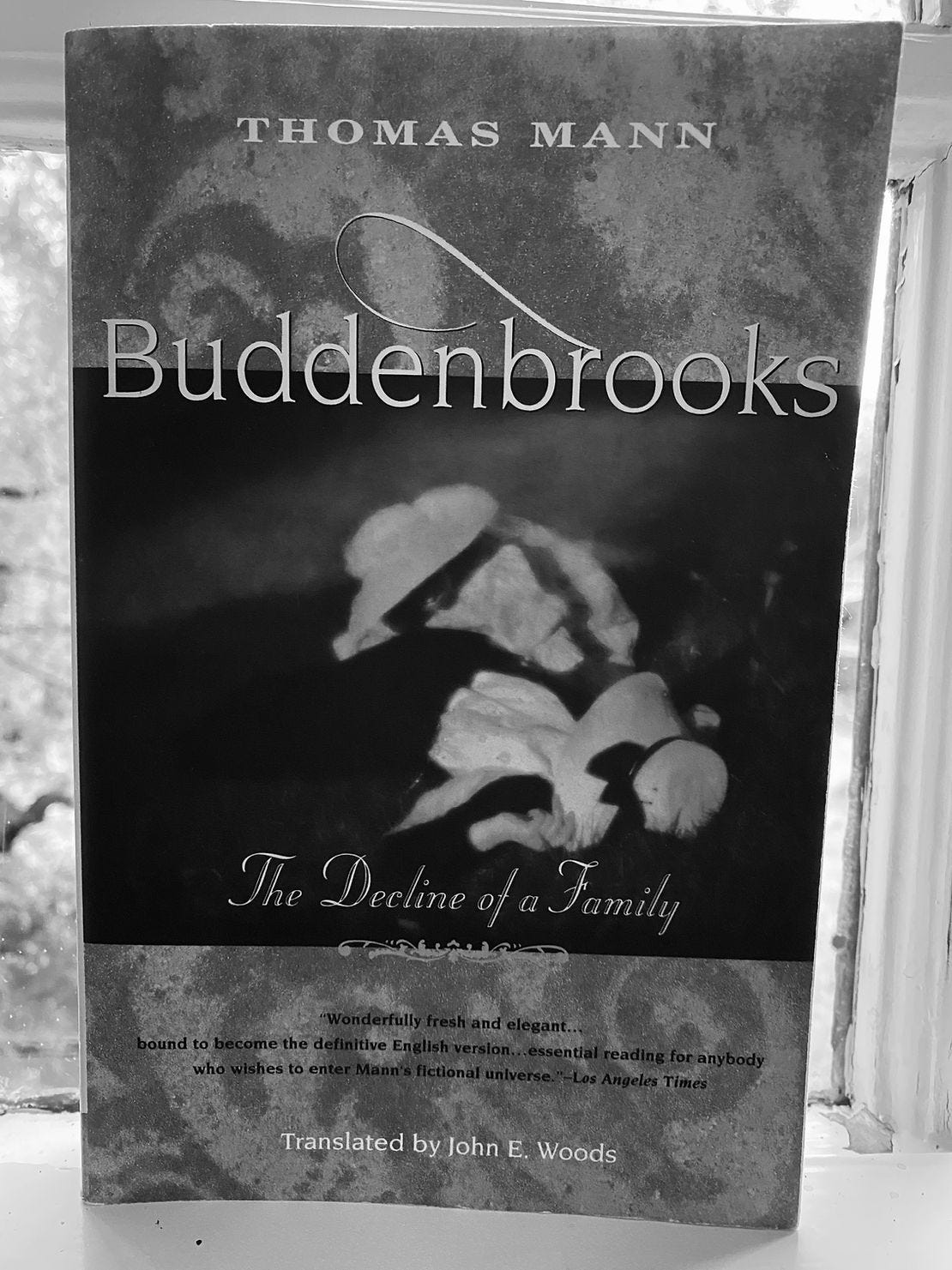Why Read: One of those incredibly long Thomas Mann novels ...
After reading The Magician by Colm Toibin, I decided to read one of Mann’s BIG books – and they are all big – over the holidays. I chose his first, Buddenbrooks, written in his mid twenties, published in 1900 and a big literary success. It launched Mann. Toibin’s story did not inspire me as much as it challenged me to tackle Buddenbrooks. I had read The Magic Mountain in my twenties along with Death in Venice and a few shorter works. I had not read Mann in an age and had no idea if I had liked the experience or not. In my twenties I often read a book to say to myself and anyone around that I read the book. Reading was and remains a passion, but one still leavened with vanity.
The Magic Mountain was long, at times boring, but, in the end, I took something from it. I am still trying to find out where that “something” is. I suspect it is stitched within my reaction to Buddenbrooks. It is hard to believe that he wrote this tome at 25 not because of its length but because of its maturity. There is nothing youthfully romantic about it. As its subtitle says, the book is about the “decline of a family” in Northern Germany over several generations spanning sixty years beginning in 1840. Buddenbrooks is, in substance but not in fact, autobiographical. It was written by a deeply repressed Mann as an effort to come to grips with an origin story he would over time move very far away from. But, to speculate as to why a writer writes a book is small change compared to why YOU read the book and, in this case, after 728 pages, finish it.
I am glad I read Buddenbrooks, not only for its calisthenic value, but because a little part of me now has a meticulously rendered portrait of 19th century Germany in my aging gearbox of a mind. A particular illumination comes with that. Tolstoy’s 19th century Russia inhabits a similar place as does Dickens’ London and George Eliot’s Middlemarch. Because of the vastness of this type of novel, the time invested to read it (let alone write it!), the many moments of just “pushing through”, leave you with an imprint, a small postage stamp from a foreign place. You do not have to go into the 19th century for such works. The Soviet Union of Grossman’s Life and Fate, the West of Lonesome Dove, even the Maine and Dallas of Stephen King’s 11/22/63 contribute their own stamps. They are all long and finely woven and leave their mark.
Its other contribution to my life is that it falls within the great genre of its subtitle – a family saga. This is the world of Tolstoy, Dickens, Eliot, and Trollope. It is a decidedly 19th century phenomena with its increasingly rare and spare modern version ranging from Steinbeck to Joyce Carol Oates to Wallace Stenger. Like much of art when it accommodates our modern world, the literate family saga got reduced, specialized and concentrated – atomized into its many constituent possibilities. I miss the grand, brass ring family saga book or series the way I miss the films of David Lean. Lean sought the broadest canvas on which to project his films and it was a glorious thing to partake in. Buddenbrooks has NONE of the majesty of Lawrence of Arabia, but it feels just as ambitious. Lean was confident that he could make your four hours in the cinema worth it – and it was. Maybe the most marvelous thing about Thomas Mann was that he felt secure that you will thank him for taking that small fraction of your life to read his book. He was right.
As an aside, when it comes to family sagas, my favorite is John Galsworthy’s three volume masterpiece, The Forsyte Saga. Written in the first twenty years of the 20th century, his family saga covers the “decline of a family” in Victorian England with a modern sensibility that makes the prose and structure unique. Its old-fashioned roots did not prevent Galsworthy from winning a Nobel Prize but has left him on the dusty shelves only frequented by the likes of Masterpiece Theater. I read each book in the fall in Maine in a cottage on the shore over three consecutive years. I miss it (and Maine) terribly.


